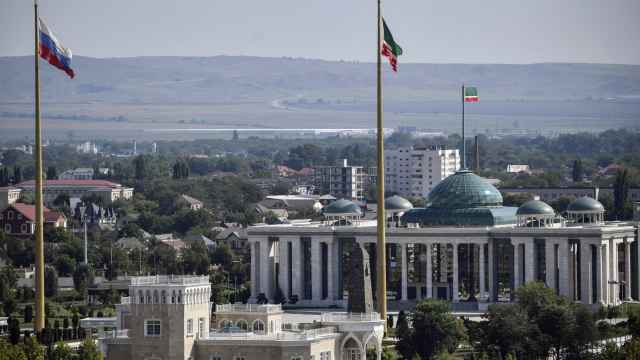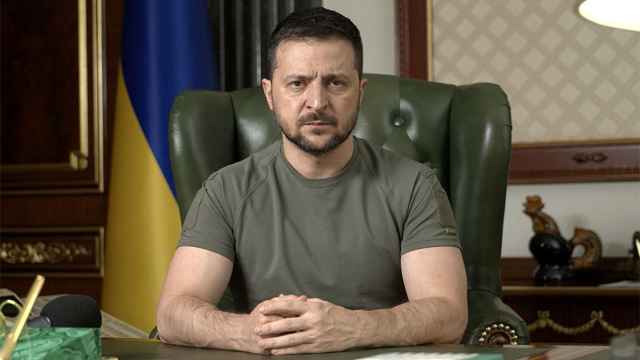 Alexei Pankin
Alexei Pankin
World Press Freedom Day was celebrated on Thursday, and the Russian press marked the event by opposing censorship, re-examining its own values and experimenting with innovative business models.
During the second week of April, the State Duma adopted a law imposing fines for the use of obscene language in the media and began work on a law banning speech that "insults religious feelings of others." At the end of the same week, the "Live with Mikhail Zelensky" program on Rossia television staged a moral debate. Former Bolshoi ballerina Anastasia Volochkova complained that she was offended when actor Nikita Dzhigurda and his wife were photographed in the exact same erotic poses that she had used in an earlier shoot with singer Nikolai Baskov. The debate as to whether the couple had plagiarized the original works was illustrated with large photos showing both pairs in semi-nude poses. To be honest, my sense of morality was deeply offended that such images were shown to a general audience on prime time television, but perhaps the program was intended to challenge the bill that would impose moral censorship on the media. Thus, I supported the protest by watching the program to the end.
The fight against moral censorship continued when Duma Deputy Speaker Sergei Zheleznyak, the author of the law against obscenity, addressed the Union of Journalists in mid-April. Not surprising, he was greeted by heckling that continued throughout his speech, ultimately forcing him to leave the podium.
This protest was led by a Union of Journalists delegate from the Far East whom I had met prior to the session. Yet he would later fall victim to censorship himself when the presidium barred him from addressing the delegates after he had tried to practically force his way to the podium.
Even Izvestia newspaper joined the crusade for the moral cleansing of Russian journalism by publishing personal information concerning the divorce of Kommersant editor-in-chief Mikhail Mikhailin. It turns out that his wife accused him of spending not only his personal money on his mistress but also the family's savings. Their marriage collapsed, and the editor not only refused to draw on his 1-million-ruble ($32,000) monthly salary to pay child support for his son, but even committed assault and battery against his former mother-in-law. He now faces up to three months in prison. All of this was reported by Izvestia, a newspaper that has historically been synonymous with outstanding journalism, in an apparent attempt to edify unfaithful spouses and alimony dodgers that have wormed their way into our ranks.
At the same time, the Dozhd television channel has announced plans to experiment with its business model. General Director Natalia Sindeyeva said in a recent interview that the channel would introduce fees to view Internet-based programming. She claimed the move was necessary both because the authorities were putting pressure on the channel's advertisers, while Dozhd anchor Leonid Parfyonov reportedly demanded an outrageously high salary. Apparently, the new fees will help the channel resolve both problems at once.
Amid all of these squabbles, I would like to wish a happy World Press Freedom Day to all journalists and their numerous readers.
Alexei Pankin is the editor of WAN-IFRA-GIPP Magazine for publishing business professionals.
A Message from The Moscow Times:
Dear readers,
We are facing unprecedented challenges. Russia's Prosecutor General's Office has designated The Moscow Times as an "undesirable" organization, criminalizing our work and putting our staff at risk of prosecution. This follows our earlier unjust labeling as a "foreign agent."
These actions are direct attempts to silence independent journalism in Russia. The authorities claim our work "discredits the decisions of the Russian leadership." We see things differently: we strive to provide accurate, unbiased reporting on Russia.
We, the journalists of The Moscow Times, refuse to be silenced. But to continue our work, we need your help.
Your support, no matter how small, makes a world of difference. If you can, please support us monthly starting from just $2. It's quick to set up, and every contribution makes a significant impact.
By supporting The Moscow Times, you're defending open, independent journalism in the face of repression. Thank you for standing with us.
Remind me later.





